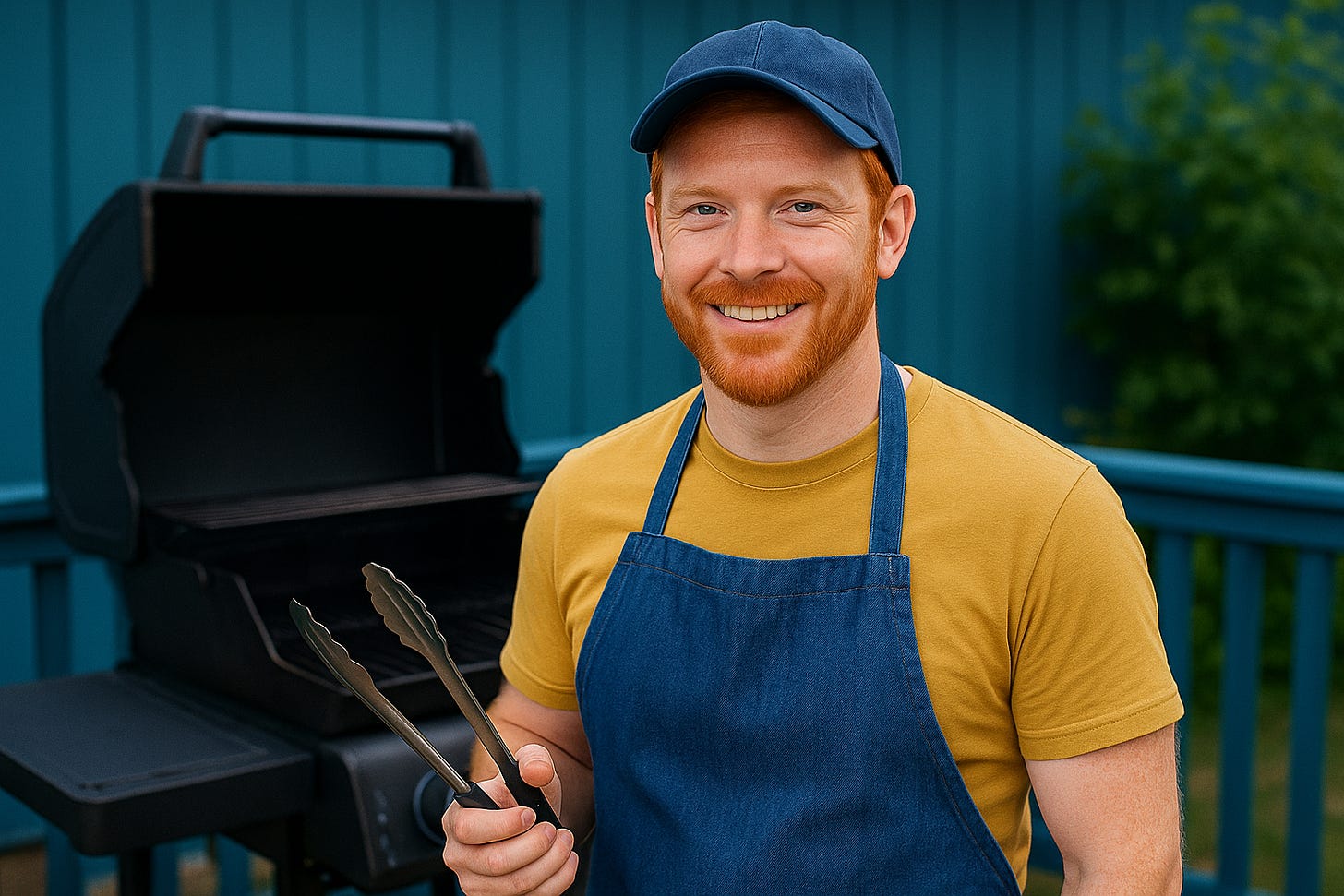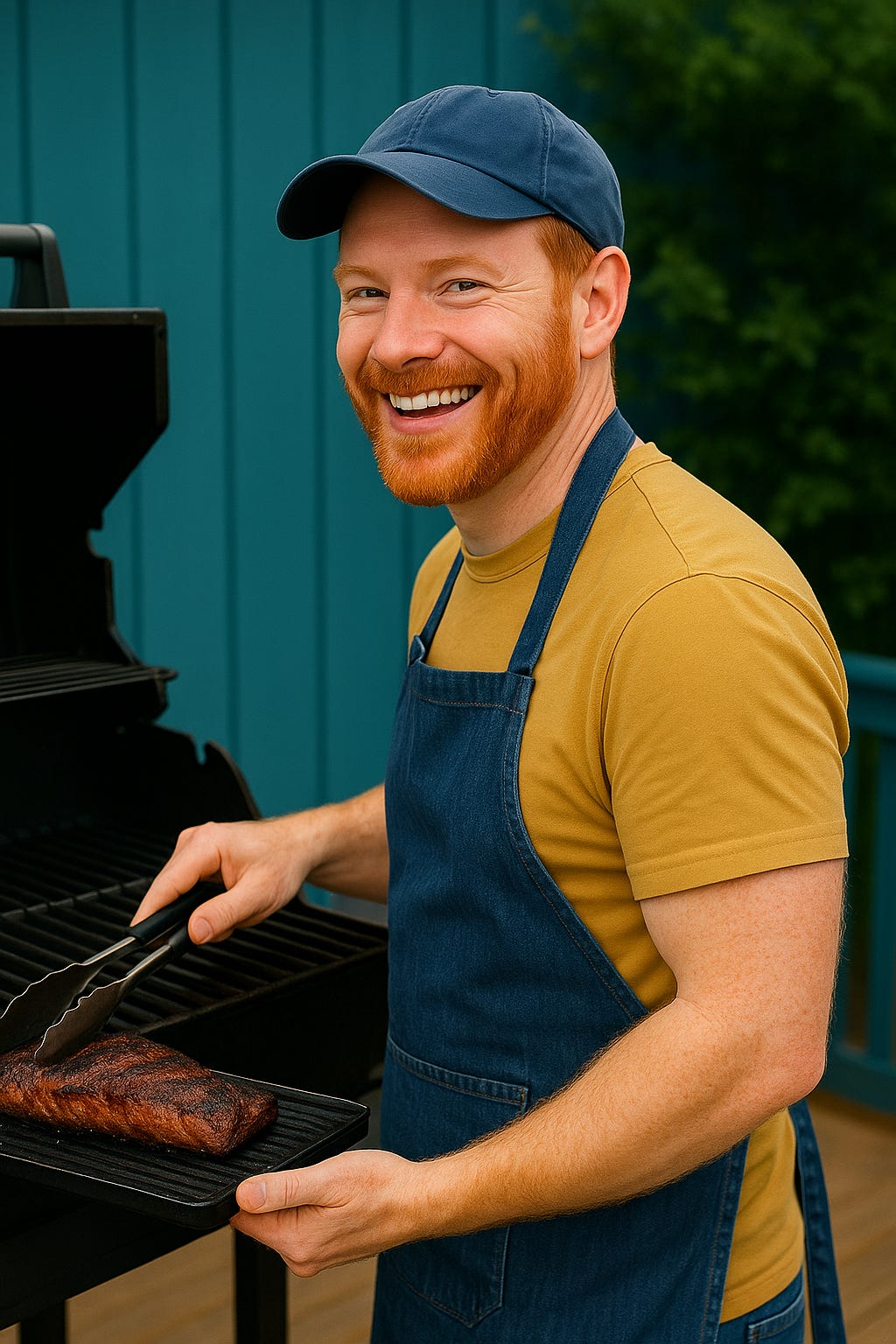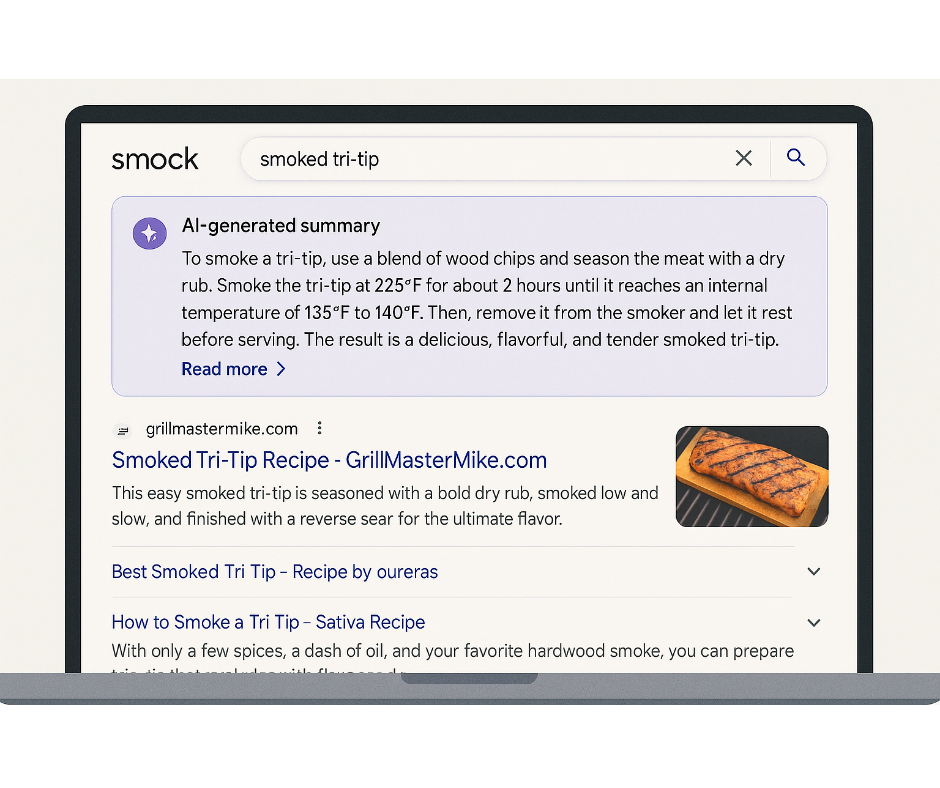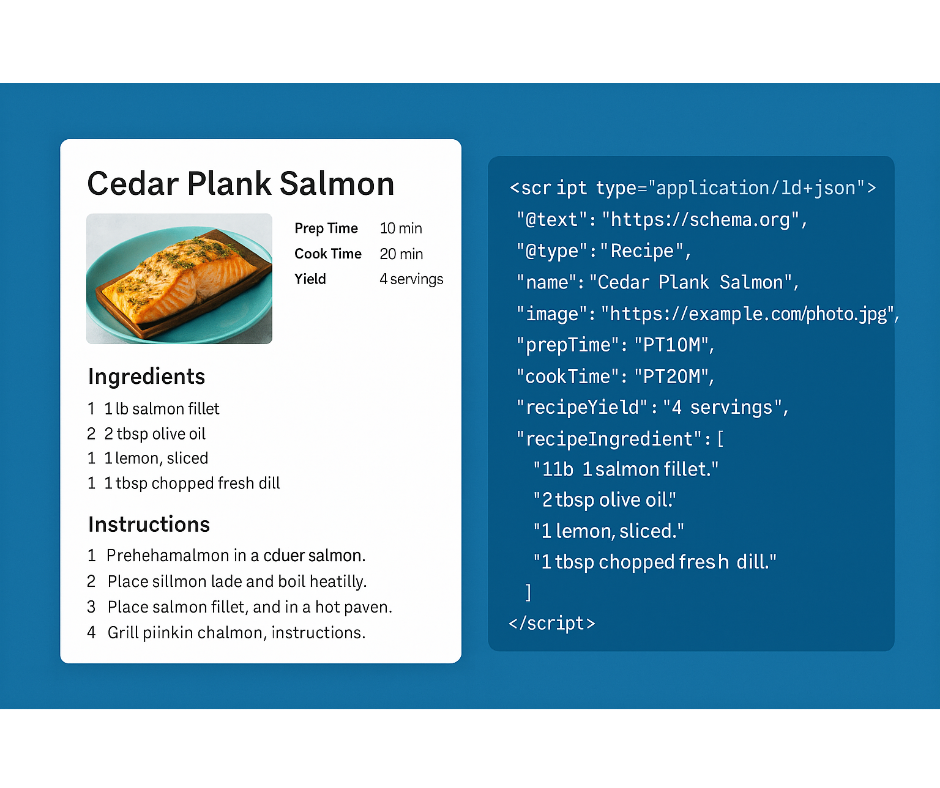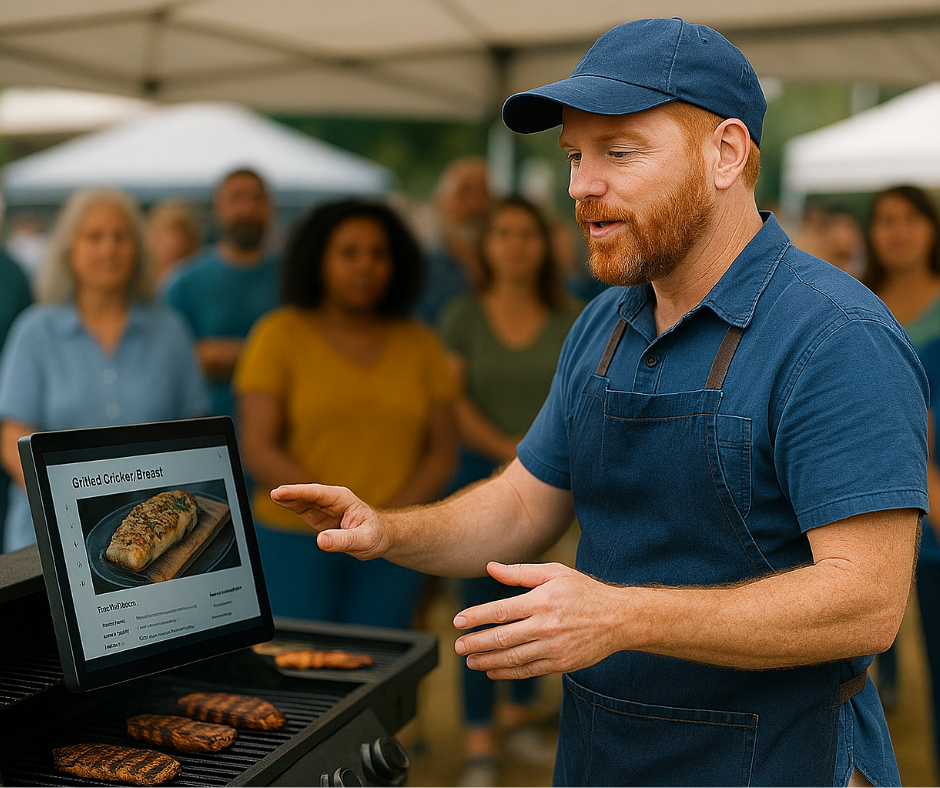Agents, Advocacy, and BBQ
How AI’s next leap and a push for creator rights are shaping the future of food content
Sometimes the biggest shifts in content happen quietly
Last month, Instagram content became searchable.
Two weeks ago, OpenAI introduced “agents”, task-doing AI assistants that can take action without you prompting them.
And while that news was still sinking in, Mediavine launched a petition urging the U.S. Copyright Office to protect creators’ rights in the AI era, mirroring Raptive’s “Keep It Real” campaign from last year.
Both stories matter.
One signals where technology is going.
The other shows how the industry is responding.
Meet Mike, the Grill Master
Mike isn’t the kind of guy you picture glued to a laptop. He’s more likely to be standing over a smoker, low-and-slow brisket sending ribbons of hickory smoke into the Idaho sky.
He started GrillMasterMike’s BBQ & Grilling Recipes 6 years ago, after friends kept hounding him for the dry rub recipe he perfected at weekend cookouts. He knows the name is kinda long, but doesn't care one bit, since it just rolls off the tongue.
At first, the blog was just a hobby, a place to share recipes for pulled pork sandwiches, cedar-planked salmon, and his legendary whiskey-glazed ribs.
Fast forward to today.
His most popular recipe is a smoked tri-tip tutorial pinned over 50,000 times.
His niche is in “real wood, real smoke”, no gas grills, no shortcuts. Every recipe comes with gear tips and timing charts to help home grillers succeed.
And his audience is fiercely loyal because he doesn’t just post recipes; he tells the story behind each cook; why he uses applewood for poultry, how his dad taught him to control heat with vents, and the year he almost ruined Thanksgiving turkey by over-smoking it.
But lately, Mike’s noticed something that raised a usually leveled left brow.
Search results show AI-generated summaries of “smoked tri-tip” before his original recipe.
Traffic dips when recipe apps repackage instructions without sending readers back to his site.
Mike isn’t anti-technology. In fact, he’s curious about tools that could help him format, distribute, and monetize his content more effectively. But he’s also realistic: without proper governance, AI can just as easily bury his work as amplify it.
What Mike’s doing now
Instead of waiting for policy changes to protect him, Mike is acting now:
Structuring every recipe with metadata, schema, and consistent formatting so any platform, or AI agent, can pull it accurately.
Building a digital recipe archive in a CMS designed for search, licensing, and API access.
Documenting his intellectual property, photos, videos, step-by-step guides, to clearly prove authorship.
Tracking advocacy efforts like Mediavine’s petition so he knows when to push for his rights.
He knows he can’t control the pace of AI development, but he can control how ready his content is to plug into whatever comes next.
The future of BBQ
It’s 2030.
AI governance is no longer hypothetical, there are clear rules, licensing frameworks, and automated systems for credit and compensation.
Mike’s content isn’t just a blog anymore, it’s a licensed data source for recipe platforms, smart kitchen assistants, and personalized meal planning apps.
His tri-tip recipe? It’s in thousands of home kitchens through an AI-powered grill guide that credits him by name and links back to his site.
His whiskey-glazed ribs? They’re part of a “BBQ Masterclass” integration inside a voice assistant that pays him per use.
His audience? Bigger than ever, because every AI interaction leads people back to his content, not an uncredited summary.
And the reason he’s thriving? He didn’t wait for governance to arrive; he built the foundation early.
The Blueberri Stack
OpenAI Agents
OpenAI’s new agents aren’t just chatbots, they’re proactive digital assistants that can:
Take initiative based on your goals
Use tools, apps, and memory to complete tasks
Work across platforms without you micromanaging every step
Example for a food creator:
Mike uploads his new brisket recipe to his blog. An agent could:
Pull key metadata
Format it into schema
Draft social captions
Publish across multiple platforms
Email it to his subscribers
Update his recipe index
But agents need structured, machine-readable content to do this well. If your recipes are buried in unformatted paragraphs, the system can’t pull what it needs.
That’s why content infrastructure, metadata, schema, consistent formatting is no longer a “nice to have.” It’s becoming the price of admission for future visibility and automation.
Mediavine’s petition: Industry advocacy in action
While OpenAI pushes forward with new capabilities, Mediavine’s petition is a reminder that industry players are also stepping up to shape how AI uses content.
Their stance:
AI systems should credit and compensate creators
Copyrighted content used in AI training should not fall under “fair use” without permission
There must be transparency around AI training data
Creators should be able to opt in, not be scraped by default
Read the full petition here ➔ https://www.mediavine.com/ai/
Their petition is drawing mixed reactions; some creators are welcoming the move, while others say it’s too little, too late, especially coming nearly a year after Raptive’s high-profile editorial push and policy advocacy to protect creator IP.
This isn’t just a legal move, it’s a public signal. More companies are waking up to the fact that putting creators first isn’t optional anymore. I know what you're thinking. Duh. Yea, me too.
Why this trend matters to creators
If AI governance is strengthened, creators may feel more confident experimenting with AI tools.
And they should because the ones who understand how AI works (and how it doesn’t) will be better positioned to use it strategically, whether that’s:
Automating routine publishing tasks
Structuring content for better visibility
Creating new monetization pathways
Governance may be coming, but it won’t help you retroactively fix years of unstructured content. If you wait until the rules are set to start preparing, you’ll already be behind.
The short version
Tech like OpenAI agents will shape how content gets discovered and used.
Governance efforts like Mediavine’s petition will shape how creators are credited and compensated.
And the creators who thrive will be the ones who prepare for both, building structured, high-quality content while keeping a close eye on industry shifts.
For Mike, that means embracing tech without losing his human voice.
For you, it could mean the same: be ready to lead when the door opens, not scramble to catch up after it’s unlocked.
Before the rules change, learn the language
AI is moving fast. Governance is coming. And when it does, the creators who thrive will be the ones who can talk to platforms, partners, and tech teams in their own language.
The Tech Lingo Cheat Sheet breaks down the terms, tools, and concepts you need to know, without the jargon, so you can:
➥ Understand how platforms and AI tools actually work
➥ Protect your work in conversations about licensing and governance
➥ Spot real opportunities (and red flags) before they hit your inbox
You’ll find 25+ essential terms like JSON, schema, taxonomy, and modular content—l, each defined clearly with a real-world “why it matters” that connects directly to your workflow.
Whether you’re pitching platforms, exploring syndication, or just tired of Googling acronyms, this guide helps you speak the language of strategy.
Because the future of food content isn’t just about recipes, it’s about knowing the systems that shape how they’re shared, found, and paid for.
Get it for just $9 ➔ https://www.blueberri.co/resources/p/tech-lingo-cheat-sheet
I hope this week’s issue gave you a clearer picture of where tech and governance are heading and why starting now is your best move.
The future of food content will always need a human touch, and I’m here to help you keep yours at the center of it.
Your friend in food,
Sandie



